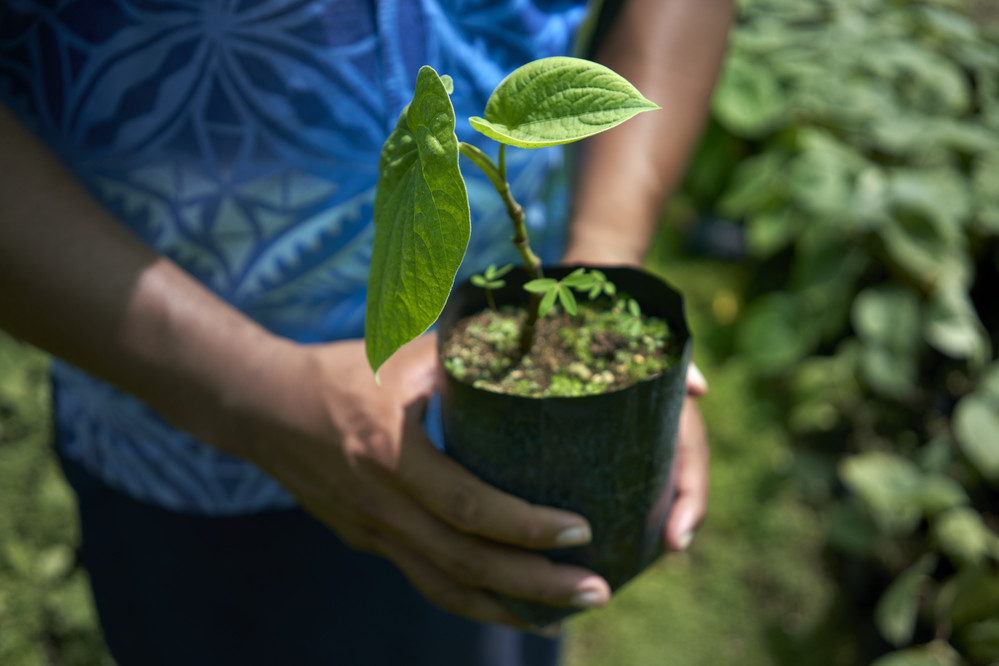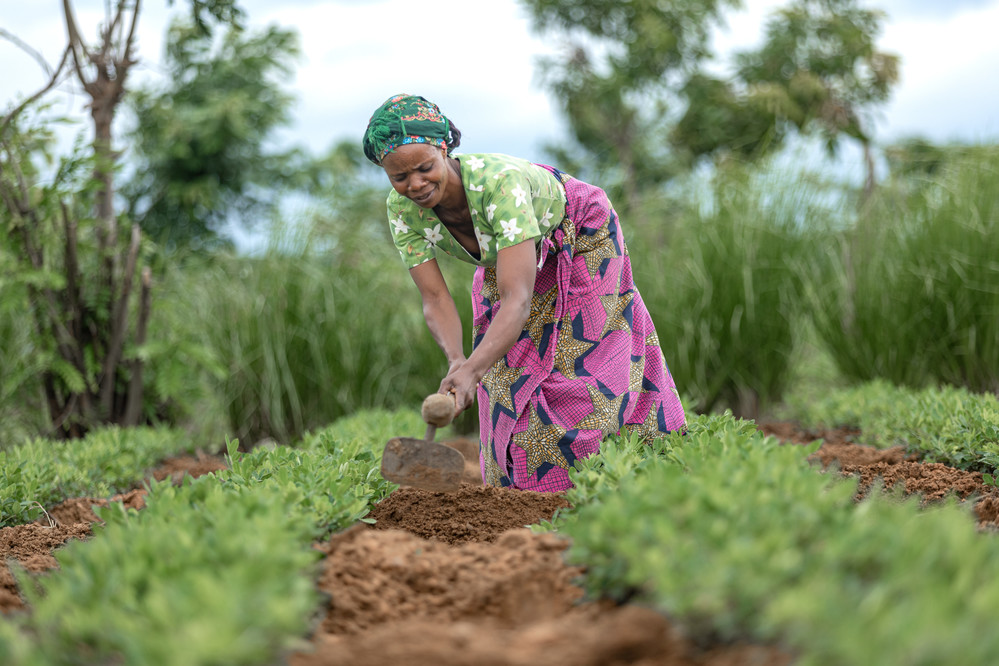In this edition of our Member Spotlight interview series, Stefania Lenoci, Head of the Private Sector Advisory and Implementation Unit at IFAD, tells us about a new financing mechanism for climate adaptation in East Africa, and how IFAD’s Private Sector Financing Programme channels funds to rural enterprises and farmers.
___

Stefania Lenoci, Head of Private Sector Advisory and Implementation Unit, IFAD
Please tell us about the different ways IFAD currently engages with private sector actors for rural transformation.
IFAD’s work with the private sector is not new. We have been working indirectly with the private sector through government investments, particularly through projects focused on strengthening value chains, which represent 79% of our US$8 billion public portfolio. IFAD has also invested US$1 billion in rural finance projects to improve productivity and build resilience in rural areas. IFAD engages with private financial intermediaries, non-bank financial institutions (e.g. insurance companies), impact investors, as well as fintech firms, to promote regular and innovative financial products like mobile money, micro-insurance, and remittances to enable and catalyze financing for farmers and rural enterprises.
However, it became apparent that these efforts are not sufficient to meet the financing needs of rural people without more direct and strengthened engagement with the private sector. This is why in 2020 we launched a Private Sector Programme to provide financing directly to private actors and enterprises to improve the resilience and livelihoods of small producers in rural areas of developing countries. The Programme offers financial instruments with lending terms that private entities cannot easily access on the market, and that channel benefits to the rural poor, women and youth in key priority areas like climate adaptation, food security and nutrition. This financial support comes with de-risking through the activities IFAD already undertakes in its sovereign lending programme, such as helping farmers gain access to markets, improve their yields and increase their incomes.
For example, in Madagascar, we support a woman-led SME that employs women as the majority of the workforce. The founder of this company is a very dynamic entrepreneur committed to her community, who wanted to cut out the role of the middle men and increase sourcing directly from smallholder farmers from 30 to 70%. We offered her a senior loan that her company was unable to get from market sources at similar conditions to scale up her collection and support to smallholder farmers. She also trains and builds the capacity of farmers through contract farming. We also linked the company with IFAD-funded projects that target smallholder farmers, thereby sharing IFAD’s expertise in engaging with farmer organizations.
Please tell us about your current role within IFAD’s private sector efforts. What inspired you to pursue this step in your career?
In my previous role as the Senior Advisor to the President of IFAD, I was closely associated with the development of IFAD’s Private Sector Strategy. When I took up the role of Head of the newly created Private Sector Advisory and Implementation Unit (PAI), I did so with great enthusiasm. PAI is a specialized unit tasked with the delivery of the Private Sector Financing Programme (PSFP), which entails leading and coordinating the deployment of all private sector financing. PAI also oversees selected private sector initiatives such as the Agribusiness Capital (ABC) Fund and the Smallholder and Agri-SME Finance and Investment Network (SAFIN). I am lucky to lead a team of highly qualified and motivated professionals.
At COP28, IFAD, the Green Climate Fund and other partners launched the Africa Rural Climate Adaptation Finance Mechanism (ARCAFIM) targeting farmers and SMEs in East Africa. What is new or innovative about this mechanism?
The Africa Rural Climate Adaptation Financing Mechanism (ARCAFIM) is an exciting operation through which we aim to trigger a paradigm shift in the way local financial sector players in Africa finance climate adaptation activities for small-scale producers. ARCAFIM has a comprehensive approach that combines financing (through a blended finance structure), technical assistance addressing demand and supply non-financial barriers, policy dialogue and an innovative Climate Change Adaption (CCA) taxonomy.
The taxonomy has the dual objective of providing an eligibility framework for climate adaptation activities and assessing the economic viability of various adaptation options that small-scale producers could consider funding through a loan. The latter is a key innovation of the program and it is critical to ensure that small-scale producers can take up and repay the loans. ARCAFIM will cover four countries in East Africa, namely Kenya, Tanzania, Uganda, and Rwanda, but our ambition is to gradually scale up to other countries and regions building on the lessons we will draw from East Africa.
IFAD founded SAFIN back in 2017. How do you see SAFIN members contributing to your work in financing agricultural enterprises and farmers?
SAFIN was conceived by IFAD in 2017 to foster dialogue and alignment across stakeholders active on both the demand and supply segments of agri-SME finance. The rationale for IFAD to initiate SAFIN was that a better-aligned global financial ecosystem surrounding agricultural SMEs would be a public good that benefits small farmers, given the importance of these enterprises in generating goods, services, income and employment opportunities for the rural poor and local food systems. SAFIN is expected to complement IFAD’s work through partnerships and relevant learning. I see many opportunities to generate mutual value with IFAD. At IFAD, we should seek to improve linkages with our own strategic and programmatic priorities within the key focus areas established by the SAFIN membership, as well as areas identified as knowledge gaps to improve access to finance for agricultural SMEs. There are also SAFIN initiatives underway for 2024, which have the potential to better inform the design of not only IFAD’s Private Sector Financing Program but also its country programs. These include increased access to finance for farmers cooperatives, co-creation opportunities in the sphere of digital innovations, and direct member co-creation opportunities with new green finance initiatives in our financing pipeline.

